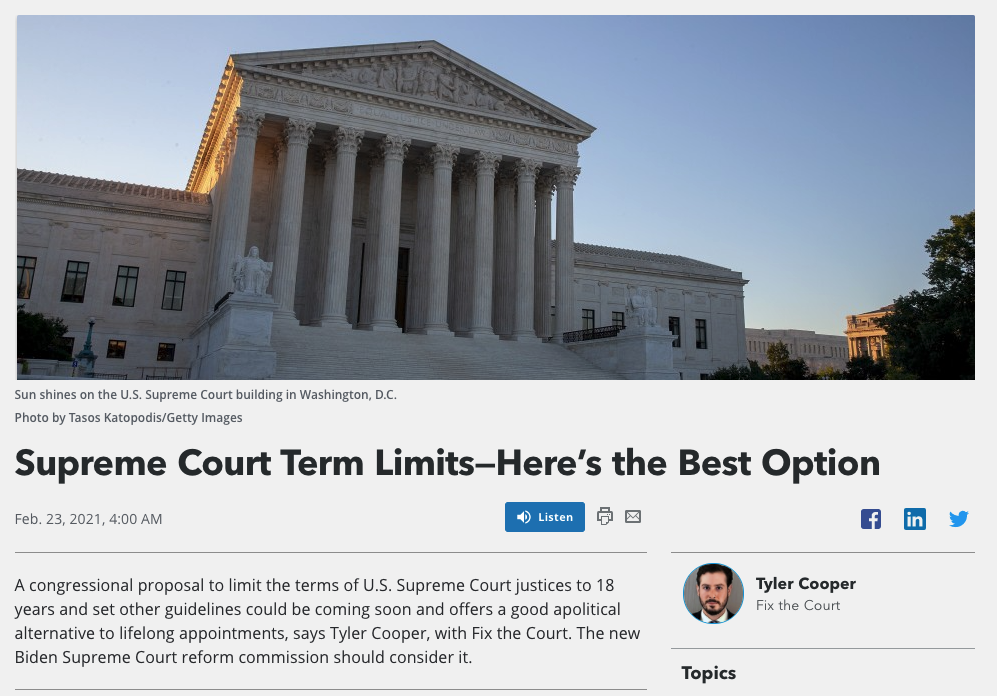 No policy operates in a vacuum, and that goes for Supreme Court reform too.
No policy operates in a vacuum, and that goes for Supreme Court reform too.
So how can we get from a Supreme Court of nine with lifetime tenures to a Court of nine with 18-year term limits?
That’s the topic of a new Bloomberg Law Insight published today, written by FTC senior researcher Tyler Cooper.
In short, the answer is by following the path set forth by Reps. Ro Khanna and Don Beyer in their 2020 Supreme Court Term Limits and Regular Appointments Act (text here).
Under this bill, we would begin to add new term limited justices every two years, and if that means a Supreme Court of more than nine justices for a short time, then so be it.
Ultimately, the piece shows, that road is simpler and more likely to satisfy constitutional scrutiny than measures like forcing the Court to hear cases in panels or kicking off some of the current nine.
As the piece concludes, President Biden’s Supreme Court reform commission begins its work at an inflection point, and it would be well served not only to give the ultimate outcomes of reform due consideration but also what a transition to those futures would look like.
Read the full piece on Bloomberg Law here.
